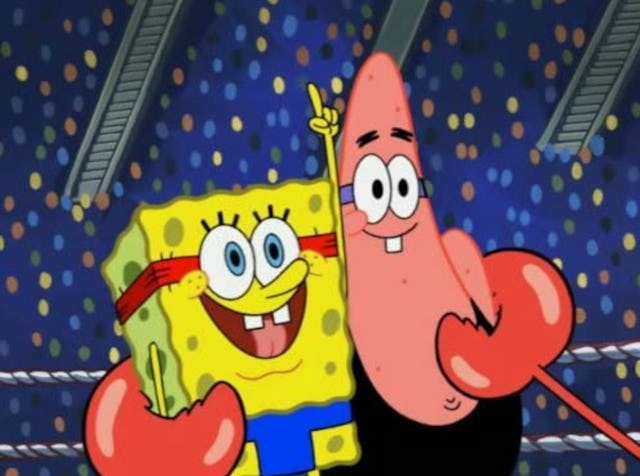Actual Researchers Are Saying ‘SpongeBob’ Can Make Your Kids Smarter
A new report shares which kids' shows introduce your kids to the biggest vocabulary.

The key to your child unlocking a larger vocabulary might be living in a pineapple under the sea. According to a new report published by Business Name Generator (BNG), SpongeBob SquarePants has the richest vocabulary out of all of the most popular kids’ shows they analyzed, with the scripts containing 21% unique words.
For the report, the researchers set out to find which television shows are the best for helping kids enrich their vocabulary, even if they are sitting in front of the boob tube. They collected footage from the most popular shows that have aired since the 1990s that are targeted at kids under 14. From those shows, they analyzed tens of thousands of words from the shows’ scripts, finding which had the most varied vocabs.
Other favorites in the top ten included Anne With An E, Pokémon, The Owl House, and The New Addams Family.
And this isn’t part of the study, but I’m pretty sure watching SpongeBob will also help your children with lifelong meme recognition.
But: Does listening to television shows rich in vocabulary enrich your kids’ own vocabularies, or even make them smarter? Studies seem to suggest so, at least for older kids. And especially if they’re going to be watching television anyway.
A 2019 study found that kids who are read to each night have a million word advantage over kids who are never read to by the time they enter kindergarten.
“Kids who hear more vocabulary words are going to be better prepared to see those words in print when they enter school,” said Jessica Logan, a member of Ohio State’s Crane Center for Early Childhood Research and Policy about the study. “They are likely to pick up reading skills more quickly and easily.”
Researchers have also established that simply talking to your child with longer, more complex sentences and a richer vocabulary makes them more intelligent.
It’s important to note, though, that studies have also found that kids under the age of 2 are actually hurt by watching television, no matter their later education. One study found that the more TV they watched, the slower they were to develop language.
But older kids might actually benefit from watching “smarter” shows with more word variation and more complex sentences. And put the closed captioning on while you’re at it!